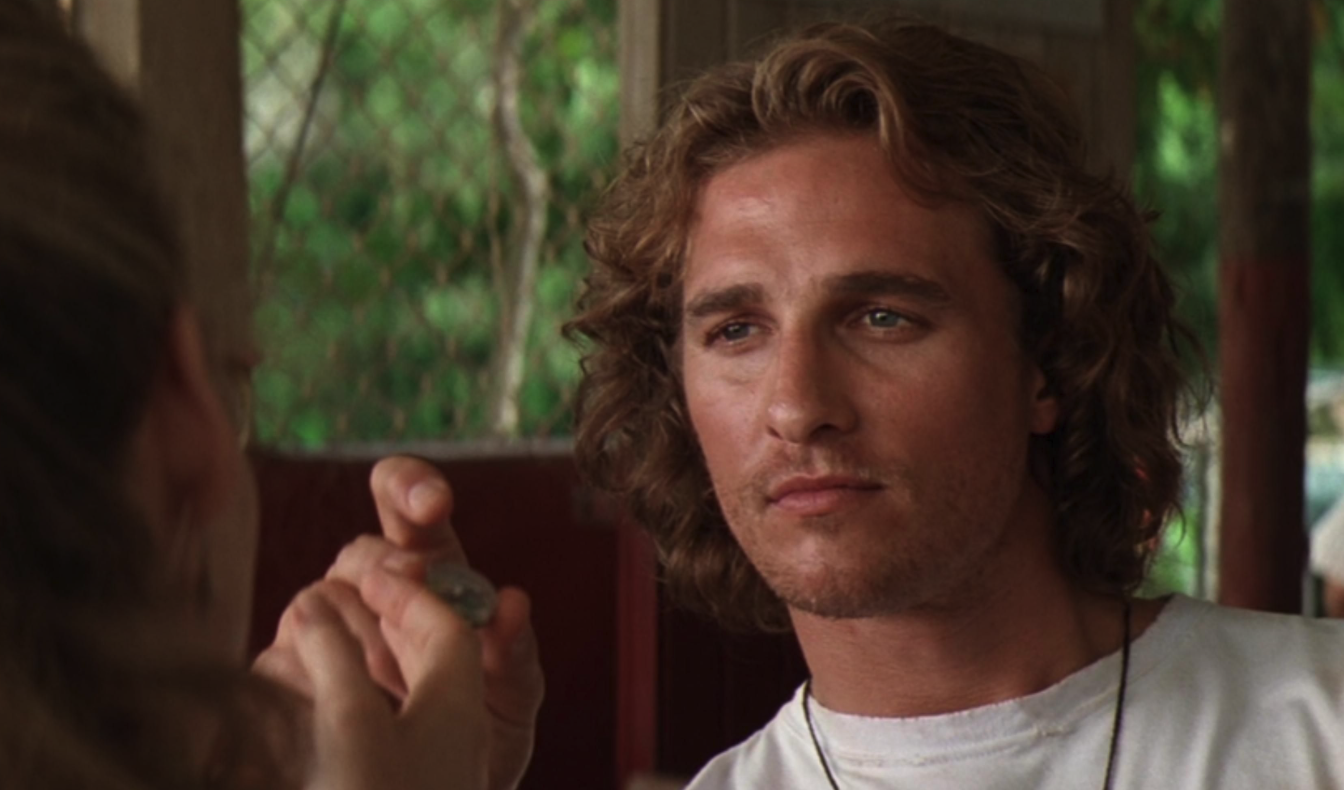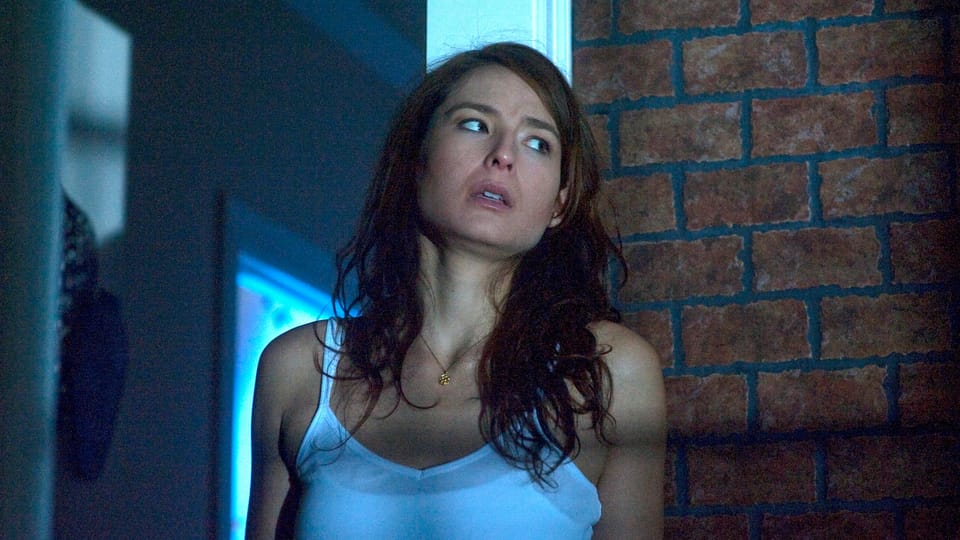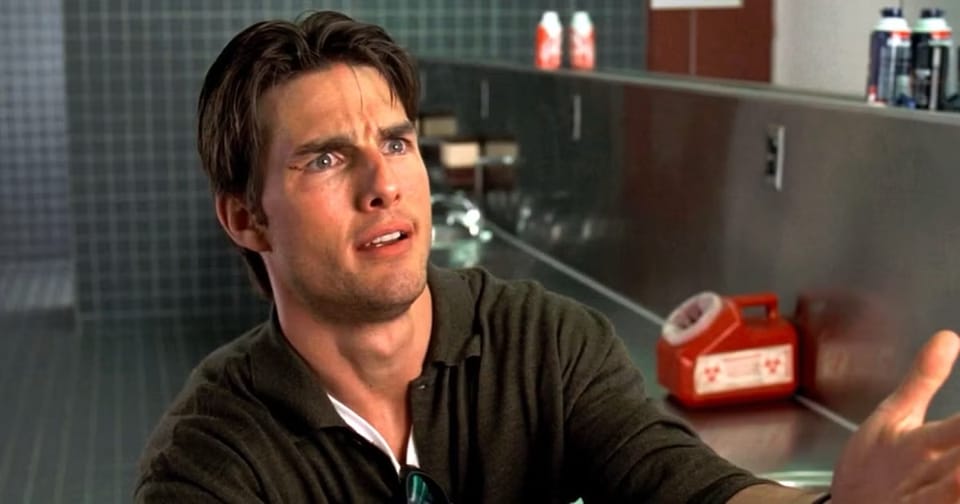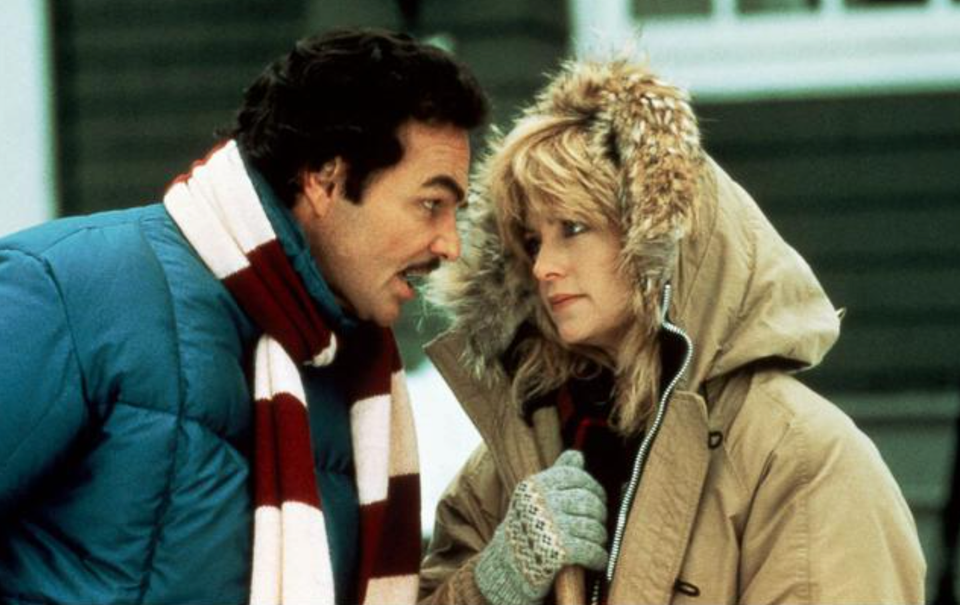The “right” script vs the phenomenal script.
The only thing better than writing a phenomenal script is writing the "right" script. Unfortunately, you don't have any control over that.

The Story and Plot Weekly Email is published every Tuesday morning. Don't miss another one.
A week or so ago, I wrote on social media something to the effect of:
It may feel like getting read by the right people is the hard part. It isn’t. Writing a phenomenal screenplay is the hard part. And it’s not even close.
Some writers felt a sting with this comment.
Why? Because they believe they have written a phenomenal screenplay, and it has gone unnoticed.
In other words, they are not the problem. The world is the problem.
Is this true? Have they truly written a phenomenal script?
Who knows?
But I did not claim that writing that phenomenal screenplay is a guarantee of anything.
Only that it was the hardest part.
Which it is.
But anyone who has been around can tell you that phenomenal screenplays have gone unsold while terrible scripts will sell on spec and even get produced.
Longtime story analyst Christopher Lockhart pointed out in his Facebook community that it’s more important to be the “right” script rather than a phenomenal script.
That is, the right script at the right time, in front of the right people.
I know Chris a little. He is smart and experienced.
He was my thesis advisor for my MFA in 2016.
My journey getting my MFA after 18 years as a working screenwriter is a story for another time, but I knew I would need it if I was going to teach at my beloved UH, which was my dream.
Chris was one of two advisors for my thesis, and he was always patient and supportive, and his sense of story was, unsurprisingly, excellent.
So, when Chris speaks, it’s worth listening to.
And my own experience backs him up.
My screenwriting career started because the review of a play of mine that I self-produced in Houston fell on an agent’s desk at CAA.
Just about every agency on both coasts had passed on me. But this agent was young, had just been promoted, and he had an idea to turn playwrights into screenwriters.
So he saw the review, called me up, encouraged me to write screenplays, and within the year, he was my agent.
My biggest sale of the 90s.
It was a script called THE ROAD HOME.
That very same agent hated it! He told me to put it on a shelf somewhere and never show it to anyone again!
But he asked for coverage there, so it was in that glorious system at CAA, and it somehow reached Kevin Huvane’s desk.
Huvane handled Matthew McConaughey, and the part was, indeed, perfect for Matthew.
We sold it within weeks to Warner Bros. But here is the kick: the script itself was not great. It needed a lot of work. Yes, the role was wonderful, but we never did get that story to work like we wanted to.
It was just the right place, the right time, in front of the right person.
A few years later, I went in to pitch for an OWA to a producer.
The first thing the producer told me in the meeting was, “We just hired someone. The job isn’t available anymore.”
Yikes! Bad start.
But he wanted to pitch me something. He just got done making a movie with Chow Yun-Fat, and Yun-Fat wanted to make a western. Would I be interested in writing it? On spec.
Within a year, we had a package of Chow Yun-Fat and variations that included Samuel L. Jackson co-starring and Stephen Norrington (post-BLADE) and Justin Lin directing.
This one was a phenomenal screenplay, and it’s what got the larger town’s attention to my work. It remains the project “that got away” for me and the one I regret the most not getting made.
And it was all because someone got hired before I could pitch to adapt WITCHBLADE, the series.
Almost everyone’s careers are filled with these stories. Right place, right time, good script, not-so-good script.
This is what Chris means by “the right script.”
And he is absolutely right. The right script is a bigger factor than the phenomenal script.
Because even the phenomenal script still needs to be the right script.
But here is the most important thing:
You cannot control being the “right script.”
It’s out of your hands.
And if being a big ‘ol tongue-chewing drunk has taught me anything, it is to accept the things I cannot change, and the courage, resolve, and just plain stubbornness to change the things that I can.
So, while you cannot control being the “right” script...
You can do your best to write a phenomenal script, and you can make early choices that lengthen what the “right time” would be while expanding the potential pool of the “right people.”
So, it’s not a lottery. It’s more like expertly playing the hand you’re dealt.
Remember: it’s a mental battle.
We have to stop bitching. It gets us nowhere. Sure, bitch over drinks with friends, and have a good laugh about how ridiculous the business is…
But we cannot let it control our attitude or our energy. This industry loves to chew up victims and spit ‘em out.
Don’t be one of them.
It is natural to get more pragmatic over time, but don’t be entitled, cynical, or resentful.
People learn quickly to stay away from you.
One of my favorite lines about this is from Orson Welles,
Hollywood is Hollywood. There’s nothing you can say about it that isn’t true, good, or bad. And if you get into it, you have no right to be bitter – you’re the one who sat down and joined the game.
Or, as Hyman Roth says in THE GODFATHER II
This is the business we’ve chosen.
You can see the right script as a random thing that only happens to others and therefore unfair, or you can see it as an added incentive to write great scripts because, “You just never know whose desk it will fall on.”
The choice is yours.
You cannot chase the “right script.”
Because no one knows what that is until it is all said and done. It is only after the fact that we realize all the random things that had to go right for it to happen.
Which is life as much as it is Hollywood.
Nor can you chase trends.
First, the trend will likely be over before you circulate the screenplay anyway. Next, writing something because you think it’s trendy comes from a cynical place, and that generates cynical screenplays.
And not in the good way.
If you are excited about a project and it happens to align with a trend, that’s fine! That’s wonderful, and that’s good timing.
But it should be a project you’re excited about, independent of the trend.
The three things you can control.
If you want to sell a screenplay, the two most important factors are:
- The quality of the logline (i.e., the concept)
- The execution of that logline.
While both are really vital, from a commercial standpoint, #1 is more important.
If your primary goal is to sell the screenplay, and you did not start with a great concept, then you should not complain when it does not find a home.
It was always a long shot.
It wasn’t the team failing to convert the Hail Mary pass that lost them the game. They had already done enough to lose; the Hail Mary was pure desperation.
I recommend my course CONCEPT IS KING if you want to dive into this in more detail.
This does not mean you cannot sell a screenplay without a great concept.
It just means that the odds are stacked heavily against you, and you should know that going in.
Of the last five screenplays I have written, based on the concept alone, here is what I thought my chances were to sell it:
- MOST WANTED 70% | SOLD
- THE GOOD TEACHER 25% | Did not sell.
- DADDY’S GIRL 15% | SOLD
- ANOTHER LIFE 15% | Did not sell
- BACK UP 50% | Will keep you updated!
Of course, these numbers are guesses, but only MOST WANTED has what I consider a sure-fire concept.
The next best concept is BACK UP. The others are “good” but far from “no-brainer” concepts.
(And I screwed up the execution of MOST WANTED! I think a choice I made with the protagonists was the difference between selling it and a bidding war. )
I love them all, but I knew my chances for each one going in.
Don’t do anything without knowing what you want out of it.
Writing a screenplay because you are desperate to tell that story is a sensational reason to do it.
Frankly, there is none better.
But not all stories are equal in the market.
While we all share the fantasy of the benevolent benefactor falling in love with what we create and using their influence to get it out there, it’s just not how things work.
No one really cares how much a story means to you. They care how much it means to them, and almost always in the form of, “Can this make me money?”
Be honest with yourself about your chances.
How commercial is your concept? Do you even have a concept?
The less commercial the concept, the more you are relying on top-tier execution.
The more you rely purely on being a phenomenal script that rises above not having a clear market, the more you are relying on being the “right script, at the right time, in front of the right person.”
You are surrendering even more agency.
There is nothing wrong with this; just know and accept it before going in.
If nothing else, it makes the third thing you can control even more important:
- Get the script out there.
You have to get it in front of readers. You cannot sell a screenplay until people start voluntarily handing it to other people.
The more people you get it to, the more chances you have of someone falling in love.
Which immediately brings the question of resources.
For less commercial pieces, the need for pre-scrutiny becomes more vital. You need to enter top-tier contests every year (always resubmit to them), fellowships, queries, and relationship building. This means time, effort, and money.
(I don’t recommend hosting sites like The Blacklist unless you have a cool concept.)
And if the script is not executed well, you may be doing more damage than good
Official submissions have records and coverage. People can and do look back to see what’s on record. You don’t want a lousy screenplay hanging out on file.
Not to mention the opportunity cost of that time and energy that could have been spent on the next, more promising project!
So here we are, back to phenomenal execution again.
Know thyself and know the screenplay.
Much of what I teach is about avoiding the mistakes I made in the first 10 years of my career.
The first one? Don’t be an ungrateful, entitled drunk.
But that’s the easy one!
Next, the business is what it is, and you are not going to change it.
Everyone’s replaceable, and everything keeps going with or without you
It is unfair, greedy, racist, ageist, sexist, baldist, and illiterate, and we’re all banging on the door to get a better seat at the table.
You can control 3 things.
- The projects you choose to write.
- How well you execute them.
- Getting the projects out there to as many people as possible.
And the first two wildly influence what “possible” means in the third.
The Story and Plot Weekly Email is published every Tuesday morning. Don't miss another one.
When you're ready, these are ways I can help you:
WORK WITH ME 1:1
1-on-1 Coaching | Screenplay Consultation
TAKE A COURSE
Mastering Structure | Idea To Outline




